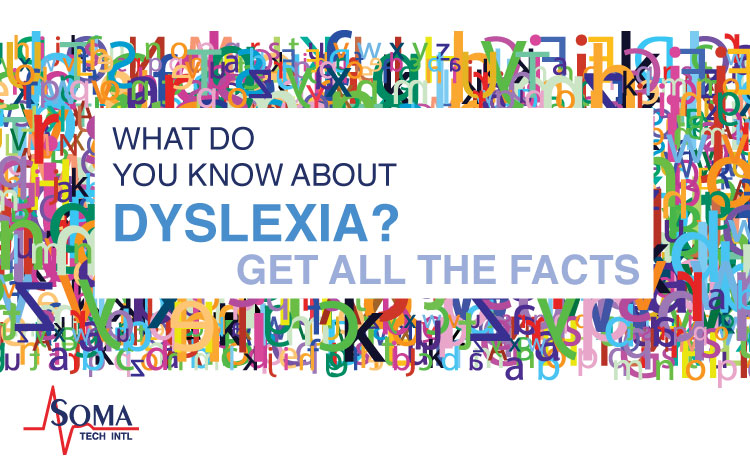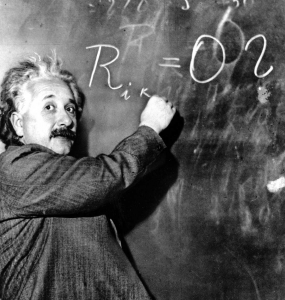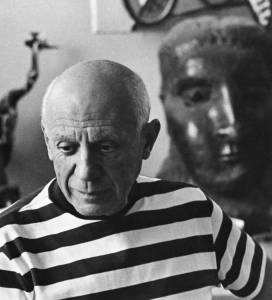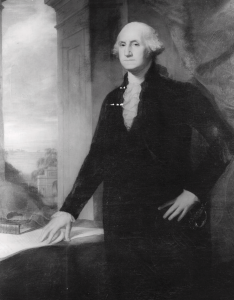What Do You Know About Dyslexia? Get All the Facts
October 27, 2022
- What is Dyslexia?
- Symptoms of Dyslexia
- Causes
- Treatment
- Success Stories
- Final Thoughts
What is Dyslexia?
Dyslexia is a learning disorder that involves difficulty with reading and interpreting words. It can affect spelling, reading paces, reading comprehension, and writing. However, dyslexia is a learning disorder and there is no connection between dyslexia and overall intelligence. It affects between 5% to 15% of Americans and about 20% of the population. October is also Dyslexia Awareness Month and we wanted to bring attention to and support children and adults with dyslexia. While there is no cure for dyslexia, individuals can develop coping strategies that allow them to be successful and navigate the different challenges they experience.
Symptoms of Dyslexia
Dyslexia affects everyone differently. Symptoms of dyslexia can vary based on their age and individuality. Here are some symptoms of dyslexia broken down into three different age groups:
Toddlers and Pre-school:
- Late talking
- Learning new words slowly
- Problems with pronunciation, or reversing sounds
- Difficulty remembering letters, colors, and numbers
- Difficulty learning nursery rhymes
Elementary to Middle School:
- Reading below the expected age level
- Difficulty finding the right word or forming answers to questions
- Problem remembering the sequence of things
- Difficulty seeing and sometimes hearing similarities and differences in letters and words
- Inability to sound out the pronunciation of an unfamiliar word
- Difficulty spelling
- Avoiding activities that involve reading
- Spending a longer time finishing tasks with reading and writing
Teens and Adults:
- Difficulty reading and reading aloud
- Slow reading and writing
- Problems with spelling
- Mispronouncing names or words
- Problems retrieving words
- Difficulty summarizing a story
- Trouble learning a foreign language
- Difficulty doing math word problems
Causes
While genes and brain differences play a role in dyslexia, we still don’t know what causes it. Dyslexia has been studied for many years; the first traces of dyslexia were actually in the late 1800s. While discoveries have improved and have helped determine dyslexia today, we still haven’t been able to pinpoint any exact causes. Genes seem to play a big part since dyslexia is known as a hereditary trait that can run in families. For every child with dyslexia, 40% of siblings also have trouble reading. Parents with a child who has dyslexia also have a 49% chance that they have dyslexia, too.
Brain anatomy and activity are another way researchers have been studying dyslexia. Through brain imaging studies they can see differences between people with and without dyslexia. One of the differences occurs in the area of the brain responsible for reading skills and knowing how sounds are represented in words. While we still don’t know the causes, we have been making vast strides in researching dyslexia in recent years.
Treatment
While there is no cure for dyslexia, there are treatments that have shown significant results. Early detection and evaluation also help to help kids with dyslexia learn to read at an early stage in their life. A lot of the techniques have to be practiced by surrounding family and peers. Including educational programs, that teachers can do to help children with dyslexia. Tutoring lessons with a specialist or individual education plans can also help. Did you know that in the United States, schools have a legal obligation to take steps to help children diagnosed with dyslexia with their learning problems? There are many ways that we can help children with dyslexia and even adults. As we learn more about dyslexia, treatments will also improve to better support those with dyslexia.
Success Stories
While dyslexia is considered a learning disorder, some people believe that dyslexia is a sign of higher intelligence. People with dyslexia think differently with their minds than those who do not have dyslexia. It’s all about how the brain is wired. Many famous people have had dyslexia and still have distinguished careers because of their way of thinking. Here are just some examples:
- Albert Einstein: One of the most influential physicists in the world, won a Nobel Prize among hundreds of other accomplishments, and we still use his teachings and theories today.

- Pablo Picasso: One of the most prolific and creative artists of the 20th century. He changed the way the world looks at art through his work, most known for his cubism era and political opinions through art.

- George Washington: The first U.S. president, one of the most famous figures in American history, helped America through the Revolutionary War.

- Robin Williams: One of modern history’s most iconic comedians. He became a household name for his comedy and his brilliant acting in several films.
These are only a few people who had dyslexia, others include Leonardo Da Vinci, John Lennon, Gwen Stefani, Cher, Salma Hayek, Jennifer Aniston, and Steve Jobs. While they all had/have dyslexia, they didn’t let it stop them, instead, their brilliant and unique way of thinking brought them great success.
Final Thoughts
Help raise awareness this month for dyslexia. Do you or anyone you know have dyslexia? What have you learned about dyslexia from reading this? Let us know in the comments below to open up the conversation!
Explore Other Blog Items By Category
Recent Posts


EKG vs ECG | What’s the Difference Between ECG and EKG?

